Fun facts and odd occurrences from the weird world of flying
Unusual aviation
.jpg)
Speeding through the sky crammed into a cylindrical metal box, kept aloft by technology few of us truly understand: you could argue that we don't talk enough about how weird flying really is. Though barely a century old, the aviation industry is part of the furniture for millions of people across the globe, but it still yields a steady stream of peculiar quirks and unusual occurrences that would look very odd in any other context.
Click through this gallery for our round-up of fun facts from the weird and wonderful world of flying, alongside strange flight stories that made the news...
Empty 'ghost flights' fly all the time
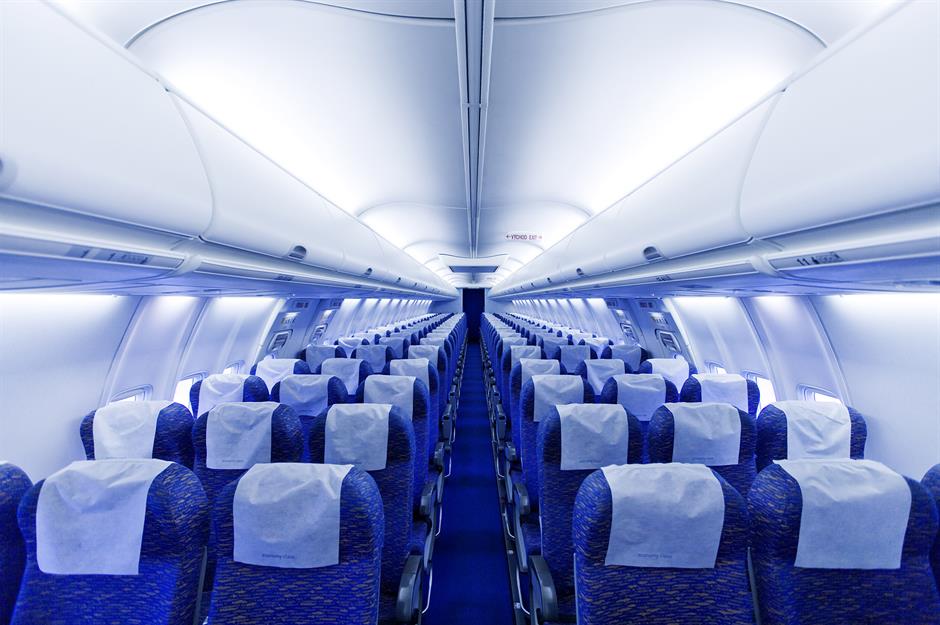
When you see a plane pass above you in the sky, there's a decent chance it has no passengers. A 2022 report by The Guardian revealed that 5,000 completely empty 'ghost flights' had passed through UK airports since 2019, with many more instances reported in the years since.
Air travel releases more carbon emissions than any other consumer activity, and the flights infuriate climate campaigners, particularly since there's no official reason why they're flying. The standard explanation is that they exist to retain coveted slots in airport timetables.
Falcons fly free on Etihad Airways
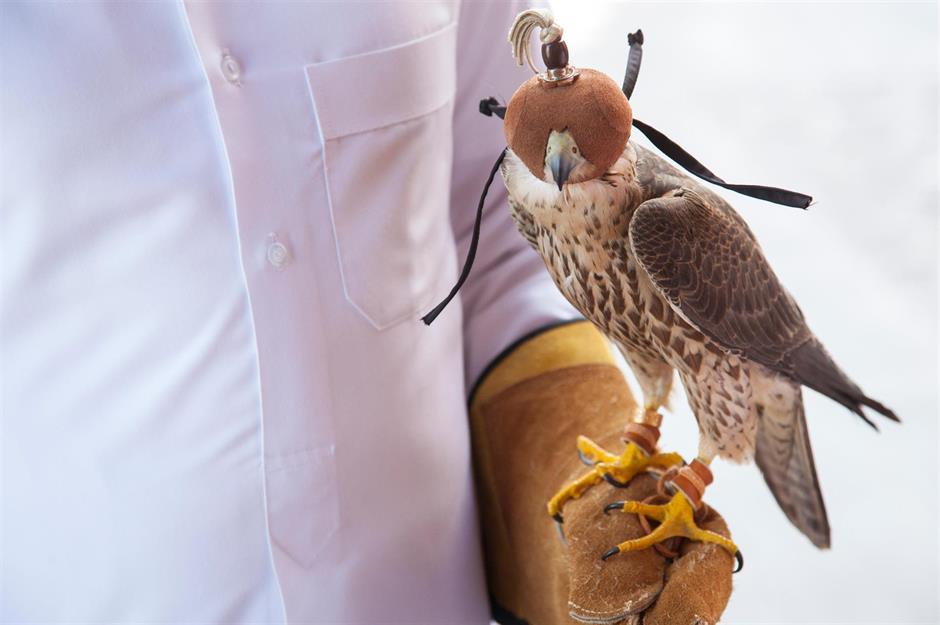
Etihad Airways did not seem to have pet owners' best interests in mind when they announced in 2022 that animal passengers would cost flyers £1,192 ($1,500) a head, rather than the £178 ($200) charged previously. But one very specific creature was not only exempted from the rule changes but can travel completely for free.
Falcons are culturally hugely important in the United Arab Emirates (Etihad is one of the UAE's two flag carriers), and are the country's national bird. In Economy class, travellers can board with one free falcon per person, plus two per additional seat, while in Business and First Class, travellers can board with two falcons per person.
Pilots and co-pilots eat different meals
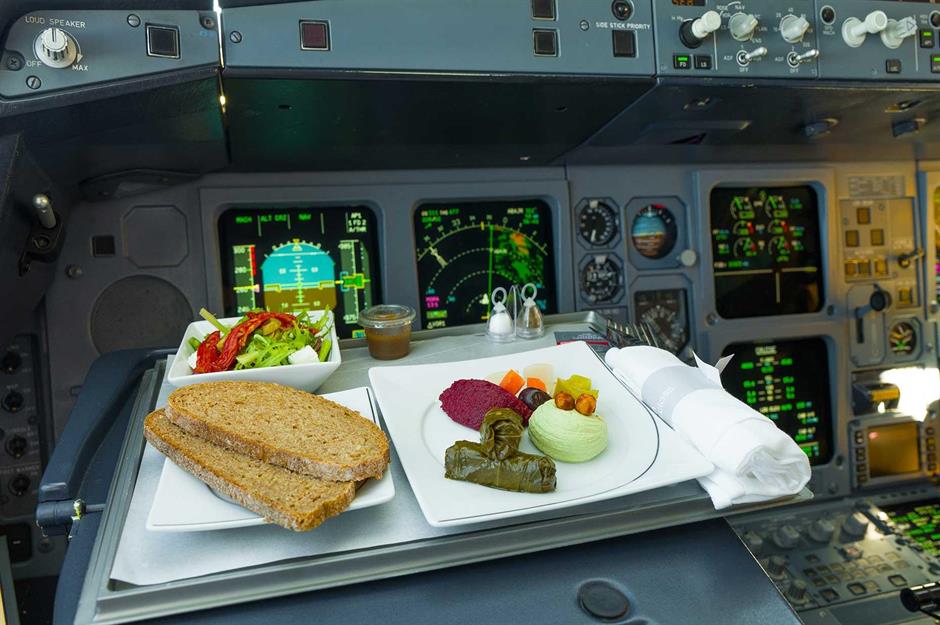
In legendary 1970s comedy Airplane! pilots, passengers and crew are all struck down by a mysterious (and amusing) illness, causing the plane to career out of control with fortunately non-fatal results. The reality would be far less funny, and, although it's not stipulated by law, most airline pilots eat different food to both the passengers and each other.
In 1975, Japan Airlines served up a stomach-churning cautionary tale: 197 people suffered severe food poisoning on a flight between Anchorage and Copenhagen thanks to a contaminated batch of ham omelettes. The incident caused 144 hospitalisations, but the unaffected pilots had both eaten different meals.
The world's shortest flight lasts about a minute

Short domestic flights have a bad reputation among environmentalists, but this one-minute-and-14-second hop between Westray and Papa Westray in Scotland's Orkney Islands takes things to a whole new level. Loganair flight LM711 is the world's shortest scheduled flight, running two to three times daily between the two islands, which house around 700 people combined.
The small Britten Norman BN-2 Islander can cram up to eight passengers into its tiny cabin, each paying £17 ($21) a head. The route is shorter than the runways of most major airports, and, in favourable winds, can take as little as 53 seconds.
There's a reason airline food tastes terrible
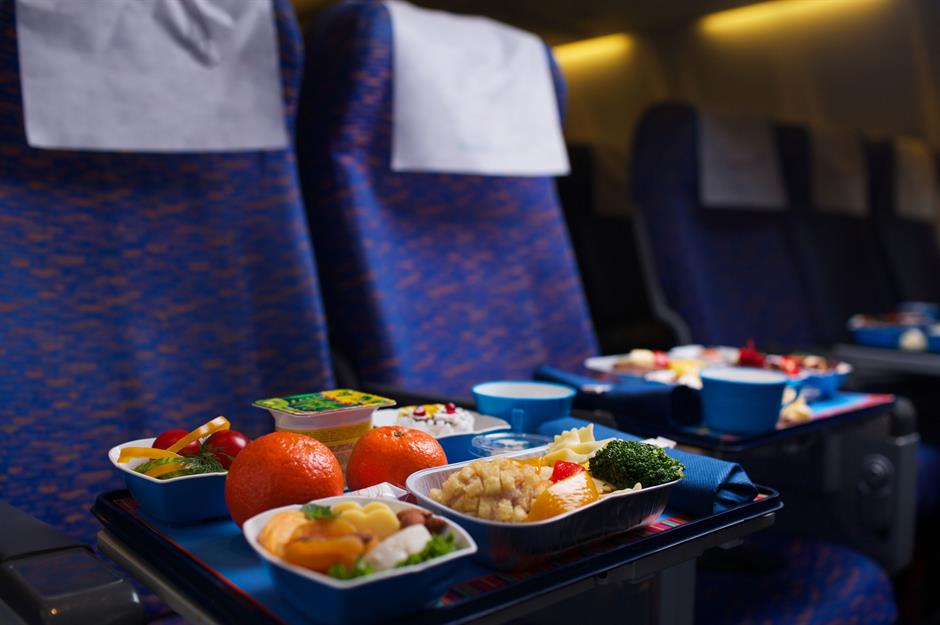
There's a reason that even business-class caviar tastes rubbish at 30,000 feet (9,000m). The pressurised cabin and exceptionally dry onboard air render your taste buds up to 30% less perceptive, meaning that even the best airline food often fails to impress.
That's not to say it would be gourmet grub at ground level, and famously foul-mouthed foodie Gordon Ramsay once remarked there was "no way" he'd eat in-flight meals. "I worked for airlines for 10 years," said the Michelin-starred chef, "so I know where this food’s been and where it goes."
The pandemic gave the world a new and surprising busiest airport
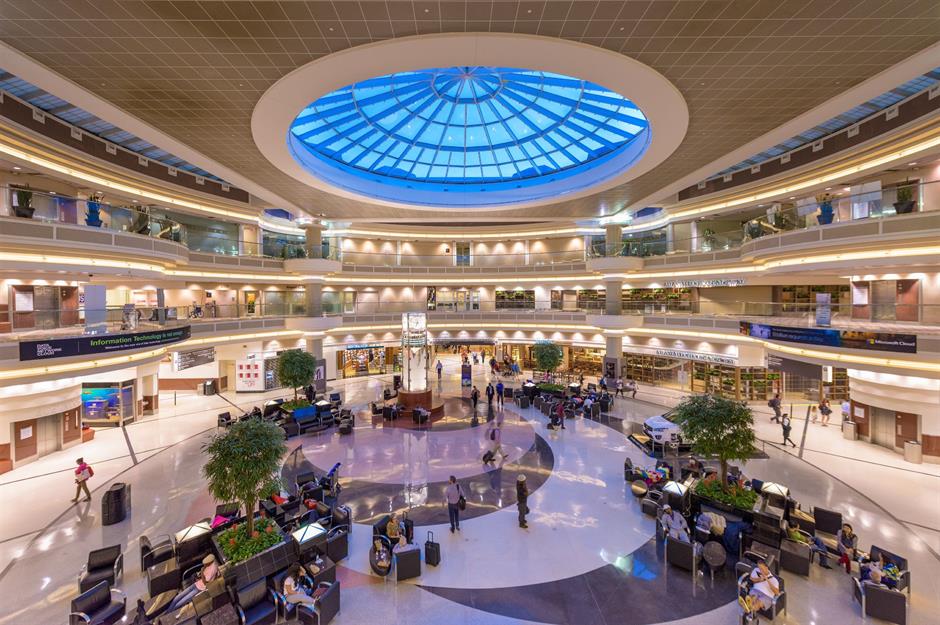
Atlanta International Airport was the world's busiest airport for a remarkable 24 years between 1995 and 2019, and it would have notched 25 straight if it weren't for COVID-19. The pandemic scrambled airport timetables the world over, and in 2020 China's Guangzhou Baiyun International Airport temporarily bumped Atlanta into second place, with 43,767,558 total passengers for the year.
Atlanta International is within a two-hour flight of 80% of the US population and is a popular pitstop for international passengers flying on to other destinations. It regained the top spot in 2021, and has retained it ever since.
Airlines use 'chicken guns' to test planes

How best to simulate a bird flying into a plane engine at high speed? Fire a bird into an engine at high speed, of course. A regular feature of aircraft safety tests from the 1940s up to the present day, 'chicken guns' are specialised compressed-air cannons used to hurl chicken carcasses into jet engines and windscreens to ensure they could stand up to bird strikes once airborne.
The first known chicken gun debuted in 1942 and could launch chickens at 400 miles per hour (640km/h), while modern models have modular barrels to accommodate different sizes of bird. The guns are sufficiently complex that few airlines have their own, and conduct the tests at contracted facilities.
There have been snakes on planes

You might have seen the movie Snakes on a Plane, but have you ever seen a snake on a plane? Passengers on a 2022 United Airlines flight between Tampa and Newark have, when a stowaway garter snake slithered through business class causing panicked shrieks.
Garter snakes are mercifully harmless, but the same could not be said for the Egyptian cobra that escaped its reptile shop owner's hand luggage on a flight between Kuwait and Cairo in 2012, and gave him a (fortunately minor) bite on his hand. As Samuel L Jackson famously said, "Get these...", well, you know the quote.
Some airlines offer 'fear of flying' courses

Of all the different fears and phobias people can have, a fear of flying is one of the more intuitive. Humans aren't designed to fly, and the idea of a giant metal box staying airborne for hours makes zero sense to the average passenger.
It's in this spirit that several airlines offer special 'fear of flying' courses, mostly promising to demystify the science behind air travel and highlight the industry's excellent safety record. Virgin Atlantic, British Airways and budget European carrier easyJet are among those to offer courses.
Several major airlines have never had an accident
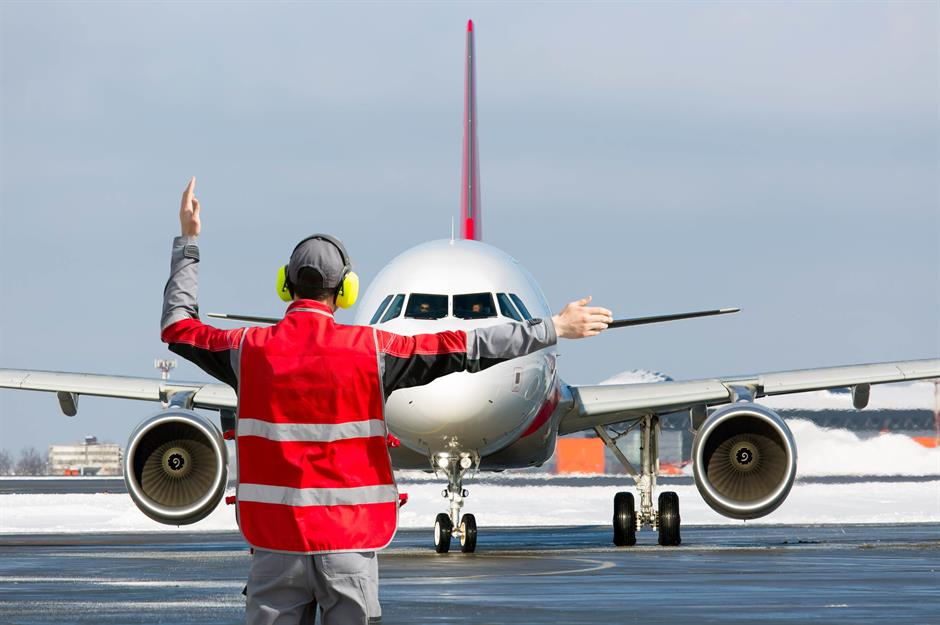
Nervous flyers can take some comfort from the industry's statistically superb safety record. In the film Rain Man, Dustin Hoffman claimed that he only flew Qantas because "Qantas never crashed", and though it wasn't technically true (the last accident involving a Qantas plane happened in 1951), there are several international carriers that have never recorded a major incident.
Middle Eastern airlines Qatar Airways, Emirates and Etihad Airways, along with European operators easyJet and Ryanair, are all among those without any fatalities.
Planes don't dump waste in the skies
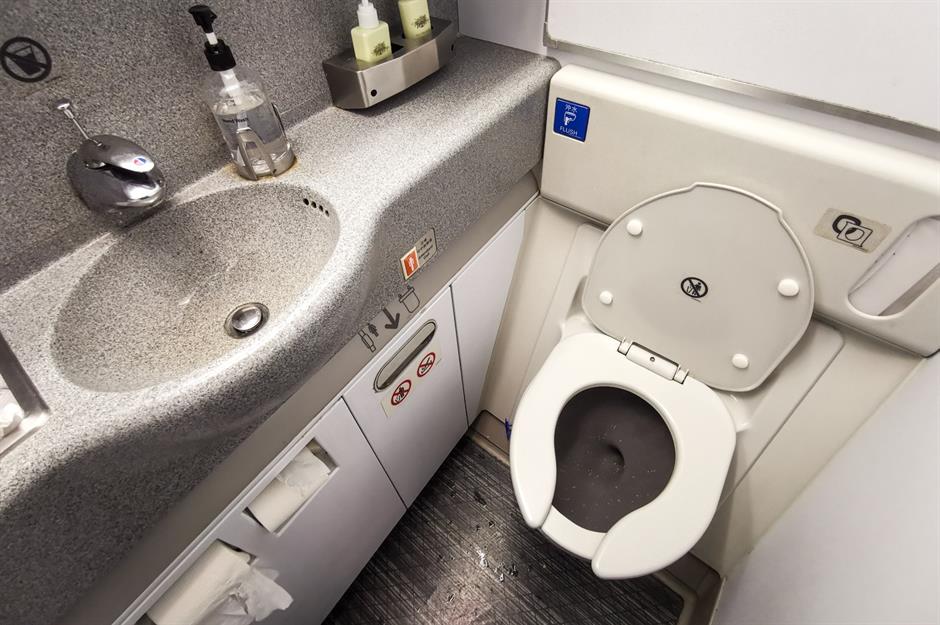
It's an urban myth that planes dump human waste straight into the air. In reality, plane toilets use vacuum technology to suck waste into a tank (flushing toilets would add too much water weight), which is then siphoned off after landing.
Sadly the myth persists because, every now and then, accidents happen. In 2021 a man relaxing in his backyard in the English town of Windsor was showered with raw sewage by a passing plane, splattering his flower beds, his garden furniture and him. Windsor is right under the London Heathrow flight path, and the incident was chalked up to a low-altitude mechanical malfunction.
The little hole in the window is for your safety
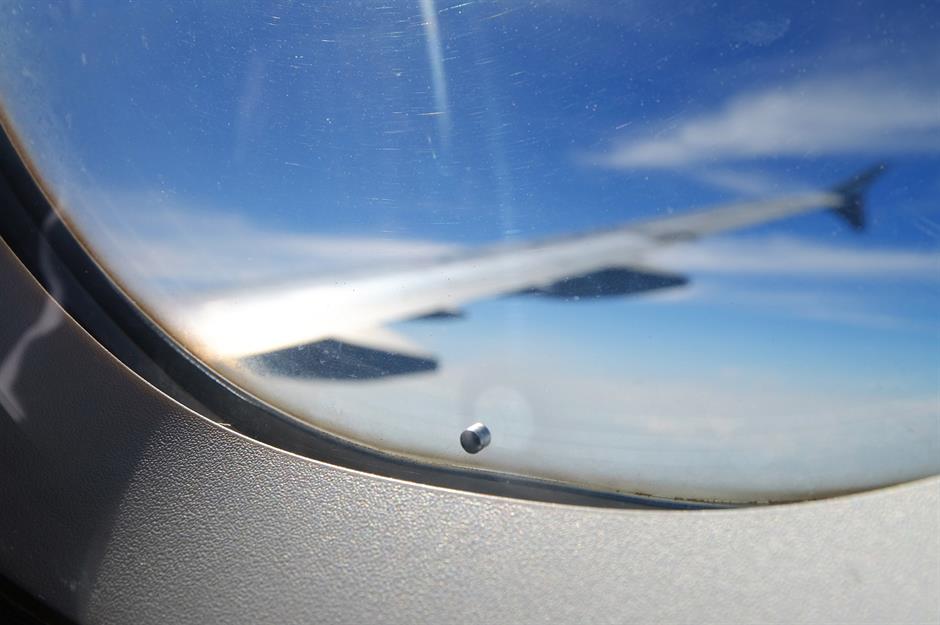
A plane window might seem like the last place you'd want even a pin prick-sized hole, but this tiny opening drilled into the inside pane could conceivably save your life.
Plane cabins have to be pressurised to keep oxygen levels comfortable (breathing at cruising altitude would otherwise be impossible without an oxygen mask), and the hole helps balance the pressure difference between the cabin and the air outside. Should the cabin suddenly depressurise, passengers would have around 20 seconds to don oxygen masks before losing consciousness.
The back of the plane is the safest
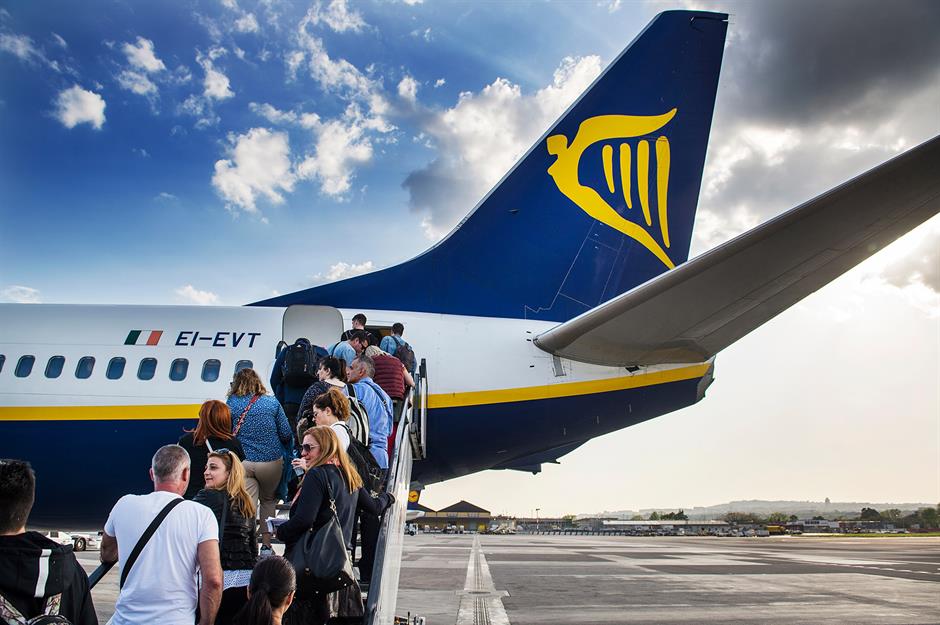
In the rare event that a plane does go down, the seating plan matters. In an article on The Conversation, aviation expert Doug Drury revealed that the middle rear seats of a plane are the safest, with a 28% fatality rate during crashes, compared with 44% for the middle of the plane and 39% for the front. Middle seats tend to be safer than window or aisle seats, as the passengers on either side of you act as a minor buffer.
But there's no need to frantically reassign your seating for any upcoming flights – Harvard University estimates that the odds of dying in a plane crash are roughly one in 13.7 million.
These pilots overshot the airport after falling asleep
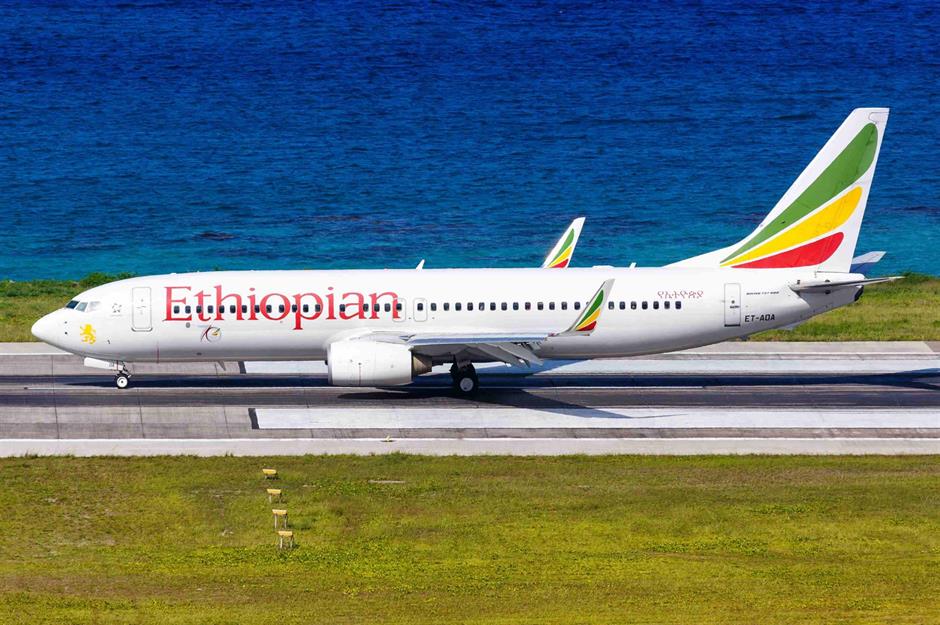
Two Ethiopian Airlines pilots were left red-faced in 2022 after seemingly drifting off in the cockpit of their Boeing 737-800, en route from Khartoum to Addis Ababa. Air traffic control was unable to reach the plane as it cruised past its destination at 37,000 feet (11,300m), only re-establishing contact when a siren went off in the cockpit to signal the disconnection of the autopilot and wake the snoozing crew. The aircraft eventually landed 25 minutes late, the passengers none the wiser about the delay.
This airline offers a Netflix-style annual subscription
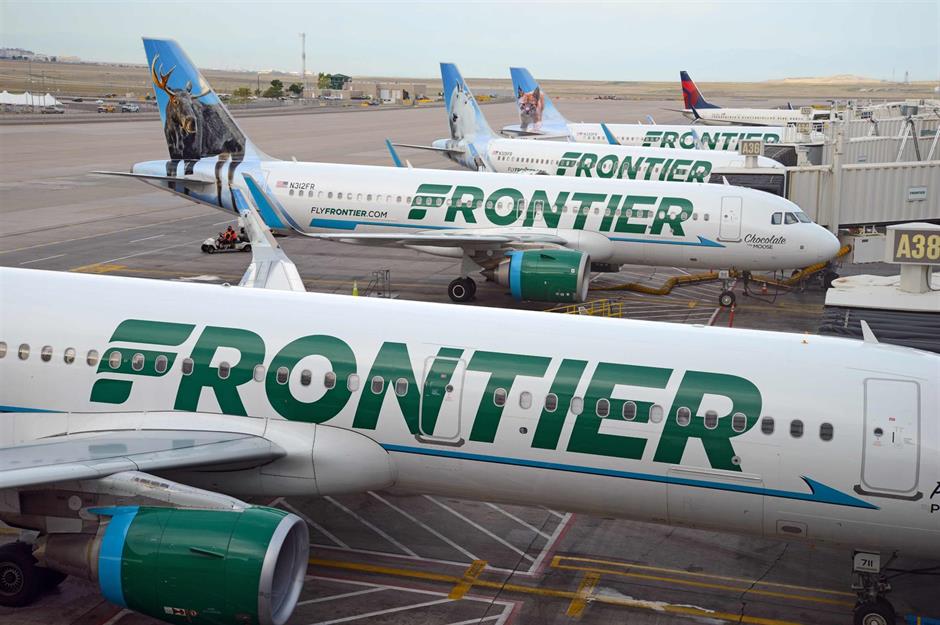
Even air travel isn't safe from 'Netflixification'. American ultra-low-cost carrier Frontier Airlines offers an annual all-you-can-fly subscription service, named the 'GoWild! Pass', that allows passengers unlimited access to flights to all the airline's destinations through the United States and Central America.
Currently, an annual pass will set you back £450 ($599), but note the T&Cs. You can only book domestic flights the day before and international flights up to 10 days before, while there are blackout periods ahead of particularly busy days and weekends.
The world's tallest woman caught her first-ever flight in 2022

For world's tallest woman Rumeysa Gelgi, Ryanair was never an option. At 7ft 1in (2.15m) tall, the 27-year-old barely fits into the fuselage let alone an economy-class seat, and she always assumed she'd never be able to fly commercially.
That changed in September 2022, when Turkish Airlines removed six seats to accommodate Gelgi on a gurney, allowing her to rest comfortably for the 13-hour journey between Turkey and San Francisco. Gelgi's proportions are caused by Weaver's Syndrome, and she's held several size-related world records since her teens. Although it was her first flight, she told her Instagram followers: "it certainly won't be my last".
A man started a fire in a plane bathroom
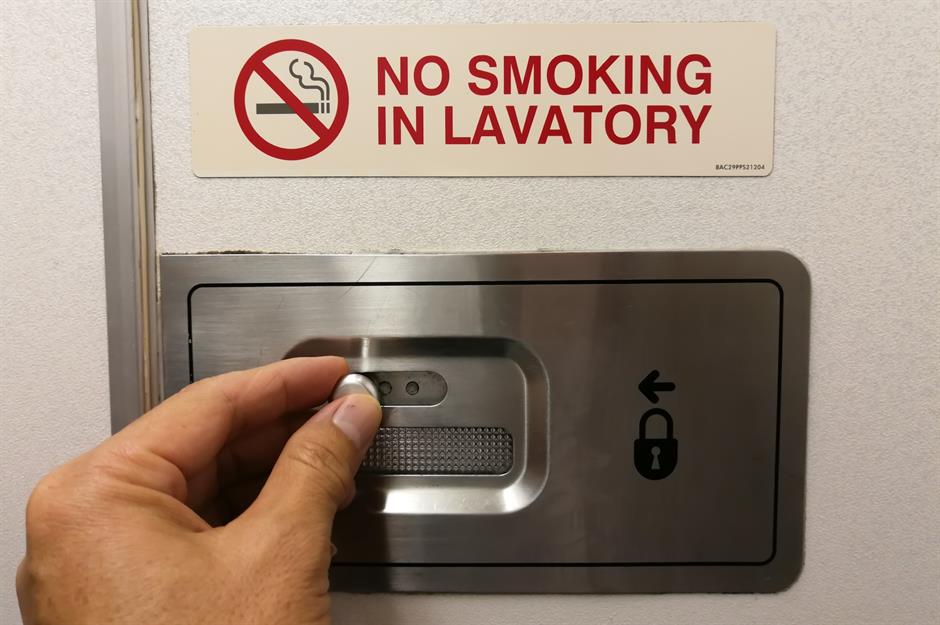
Between the large, red-lettered signs, the frequent reminders on the tannoy and a bit of common sense, it's hard to fathom how you could not realise that planes are no-smoking. But nothing could deter one foolish flyer on a Tel Aviv-Bangkok service in October 2022, who lit up in the bathroom and promptly triggered the smoke alarm.
Like any sensible person he then attempted to hide the evidence in the bathroom bin, igniting its contents and causing a full-blown fire. Cabin crew were able to put out the blaze with fire extinguishers and the flight touched down on time in Thailand.
A plane shed part of its engine mid-flight
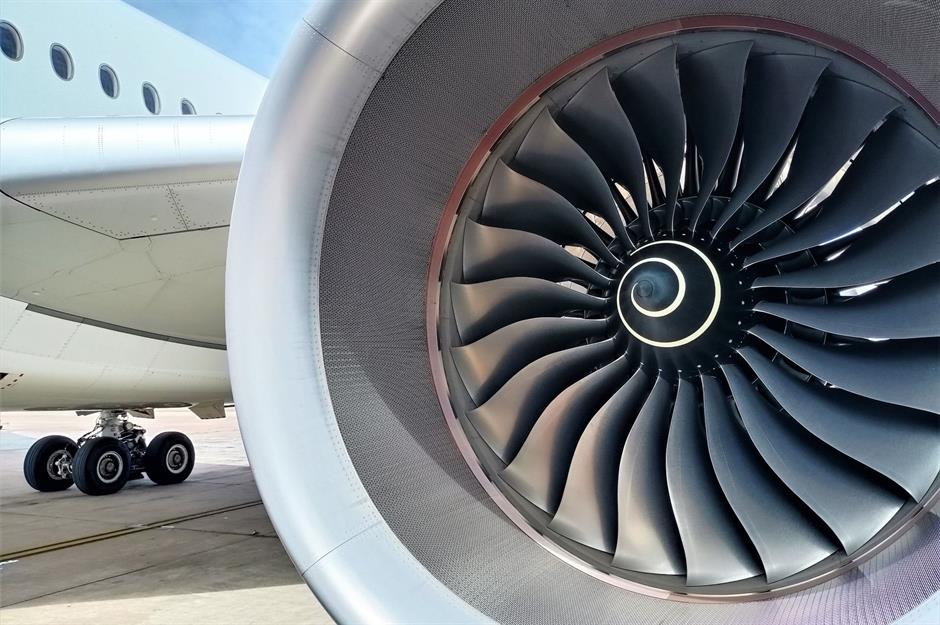
We're not aeronautical engineers, but we're pretty sure no flight plan includes part of a plane engine detaching and plummeting into someone's back garden. Unfortunately for Louis Demaret and his family, residents of the Belgian town of Waremme, that's exactly what happened in 2022 when a cowling came loose from a passing Air Atlanta Icelandic Boeing 747, thudding into the roof of his garage and coming to rest on his lawn. Planes shedding parts is rare but not unheard of, and fortunately nobody was injured.
Passenger says checked-in whisky bottle came back a third empty

United Airlines passenger Christopher Ambler was left fuming in March 2023, when his £364 ($450) bottle of Glenmorangie Highland Single Malt whisky went into his checked baggage unopened, but came out unsealed and a third empty. "Your baggage handlers are thieves", the disgruntled passenger tweeted at the airline, along with a photograph of the conspicuously part-drunk bottle. United replied that he should file a complaint at the Baggage Resolution Center, and DM the airline his confirmation number.
2023 was the safest year for flying
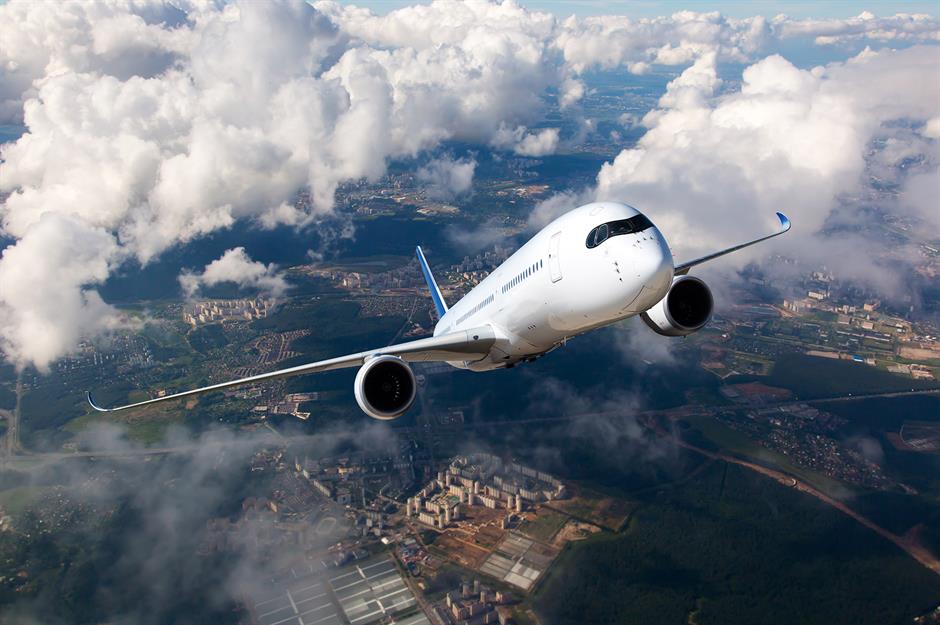
It's official: no one died in passenger-jet plane crashes in 2023, making it the safest year in aviation history. There was one fatal accident involving a domestic flight in Nepal that killed 68 passengers and four crew, but that was a turboprop plane, which generally occupies a different category. Unfortunately 2024 failed to keep up the good work, with fatalities reported in five jet crashes and two turboprop crashes.
An Alaska Airlines flight experienced a terrifying blowout
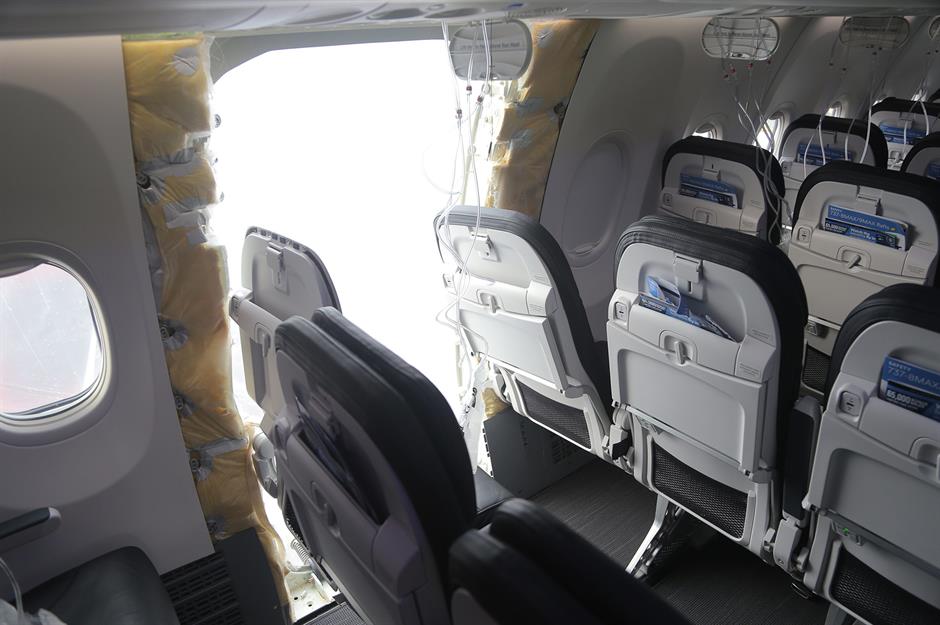
In January 2024, Alaska Airlines flight 1282 experienced the stuff of aviation nightmares. Six and a half minutes after taking off from Portland International Airport in Oregon, passengers heard a loud bang as the door panel next to seat 26A was ripped from the fuselage, causing an uncontrolled decompression of the plane.
26A was mercifully unoccupied, but a teenage boy in row 25 had his shirt torn from his body, and only the attentions of his mother stopped him following it out of the plane. Oxygen masks were deployed, and the plane managed to return to Portland with only minor injuries.
A woman flew from New York to Paris without a ticket
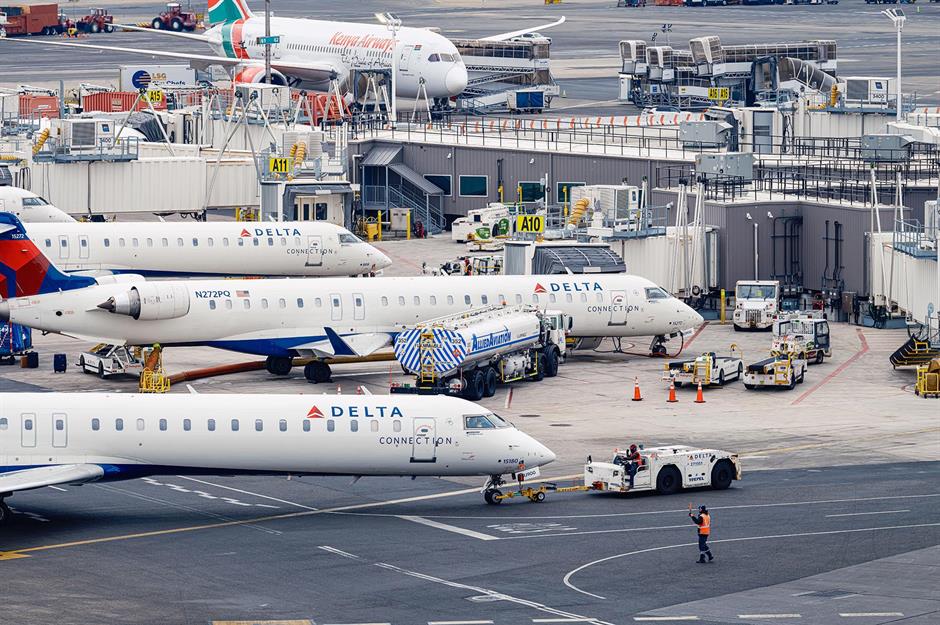
A 57-year-old Russian woman managed to sneak onto a Delta Air Lines flight to Paris at New York's JFK Airport in November 2024, and was only discovered several hours later when she refused cabin crew requests to leave the plane bathroom.
Svetlana Dali bypassed multiple security checkpoints, eventually tailgating a group receiving special assistance to gain access to the plane. She then feigned a vomiting bug to explain her extended bathroom breaks, but was exposed after giving two different fake names. A US court has since convicted her of stowaway charges, and investigators believe she had tried to fly ticketless at least twice before.
A Delta flight was delayed by a pair of pigeons
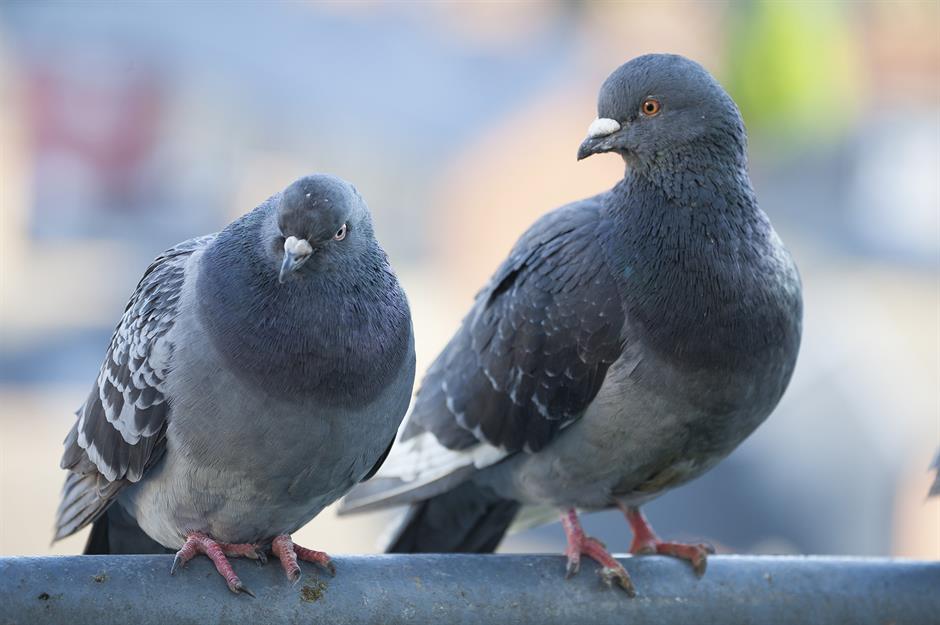
It's well-known that birds can cause problems for planes, but they usually do so from outside the cabin. In May 2025, two pigeons covertly boarded a Delta Air Lines flight from Minneapolis to Madison, delaying take-off by 56 minutes.
The first pigeon emerged shortly after boarding and caused chaos as baggage handlers chased it up and down the aisles. A second pigeon then appeared while the plane was taxiing, prompting a second return to the gate and a second Tom & Jerry-esque chase. Both birds were eventually released alive and well.
Pilots and cabin crew rest in hidden compartments

Hidden away from passengers, crew rest compartments on long-haul flights offer a private space for pilots and cabin crew to recharge. In newer planes like the Boeing 787 and Airbus A350, these compartments are located above the main cabin, while older aircraft might have them in the main cabin or even the cargo hold.
Pilots typically have their own smaller rest area near the cockpit with bunk beds, while the cabin crew gets a larger compartment, with six bunks to use during breaks.
Over-eager boarders have an unflattering nickname
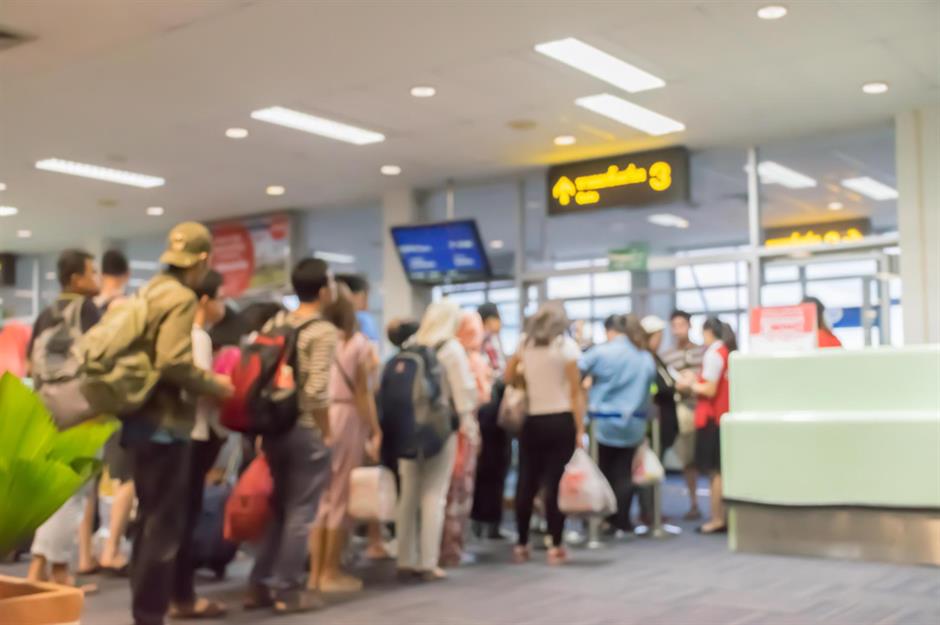
Cabin crew have all sorts of nicknames and words for things passengers don’t know about. One of those is a nickname for the people who crowd around the gate before anyone has been called to board. If you hear flight attendants referring to ‘gate lice’, they’re probably talking about those over-eager passengers who seem desperate to get on the plane as quickly as possible.
Flying from Perth to London once cost almost £20,000 ($25,800)
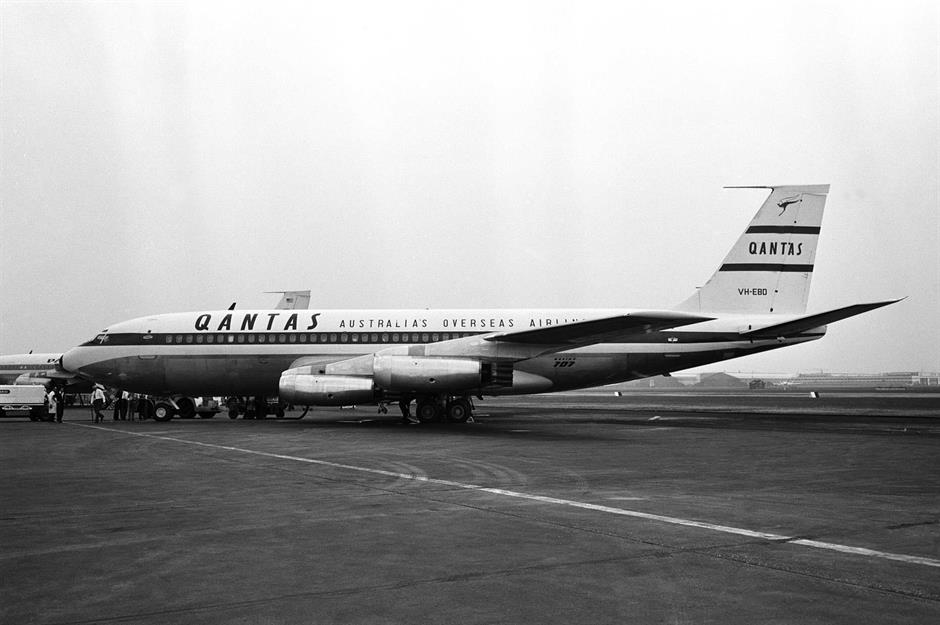
People refer to the 1950s as the golden age of flying, but in that era flights were only accessible to the privileged few. The cost of flying with Qantas on the Perth to London route back in 1955 would be £18,144 ($23,564) in today's money.
Now, you can make the same journey for around £900 ($1,181). In 1958, BOAC (the British Overseas Airways Corporation, a precursor to BA) launched the first one-way fare from London to New York which was £173 ($225) at the time, but £3,842 ($4,990) in today's money.
Emergency landings are much more common than you think
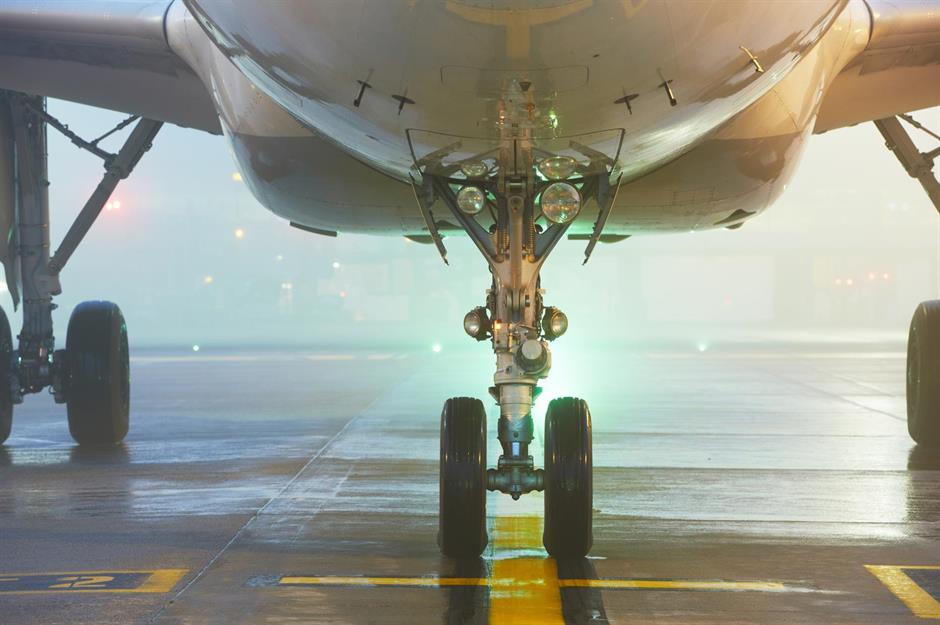
The phrase 'emergency landing' conjures images of passenger jets crashing to Earth on the ocean or in the middle of a field. But emergency landings can happen for a variety of reasons, and, according to the UK Civil Aviation Authority, around 66% of those in the UK are due to medical issues.
At one point in the 2010s, London Heathrow Airport was averaging one emergency landing per week, most of which were handled clearly and professionally by flight crews and ground staff.
Dehydration means that passengers get drunk more quickly
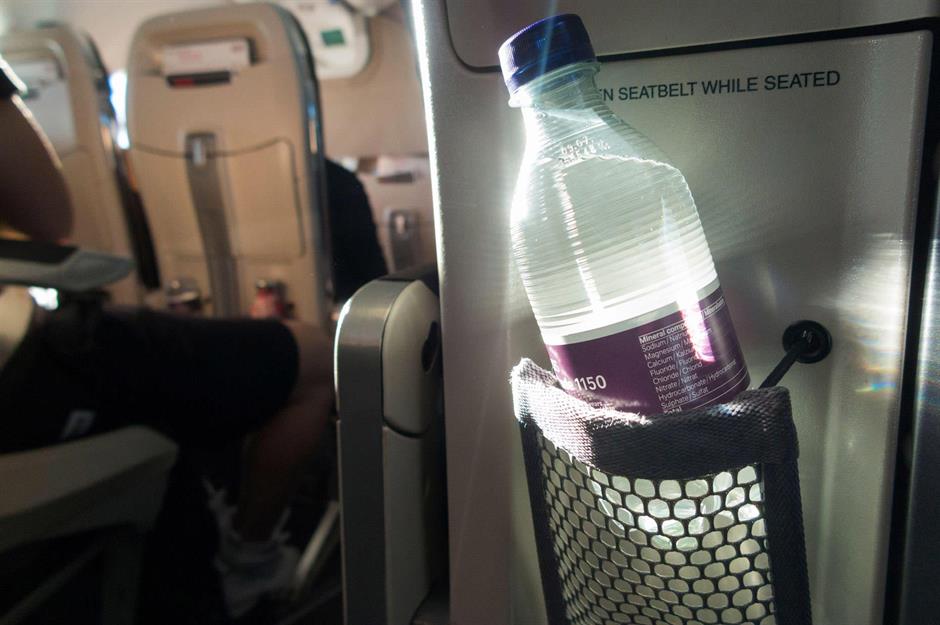
Emptying the in-flight mini-bar is a go-to activity for certain flyers. During a long-haul flight your body can get very dehydrated, with one estimate claiming that an average 10-hour flight sees your body lose at least two litres of water. Drinking heavily while airborne can, therefore, lead to one mother of a hangover the following day, regardless of whether you're still on the plane.
Turbulence has multiple causes
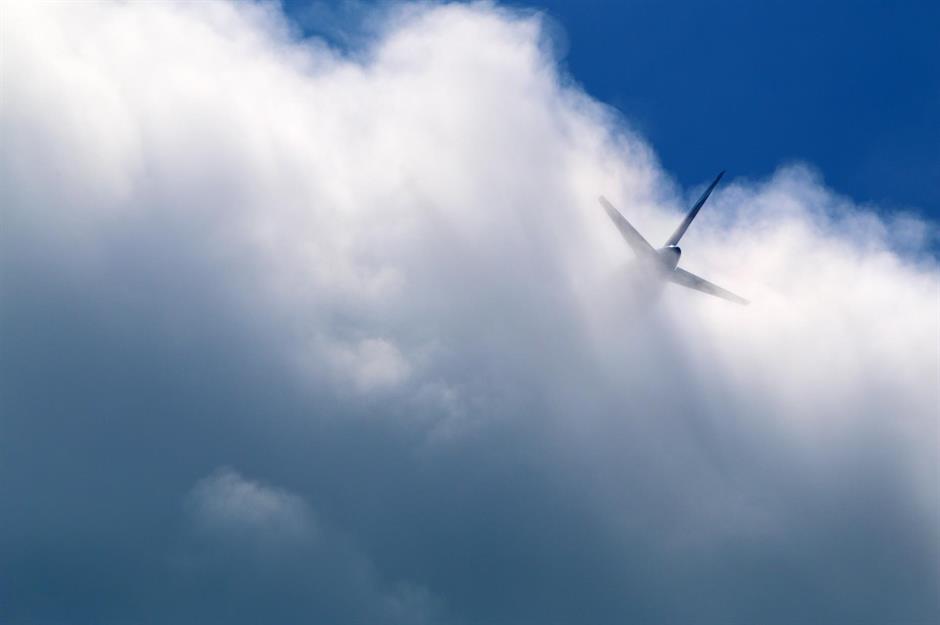
Turbulence can come from jet streams (strong wind), wake turbulence (other planes passing by), cloud cover and stormy skies, and can be completely unpredictable. Aircraft can drop suddenly in the sky after hitting an air pocket, which has sometimes injured flight attendants and standing passengers. Some airline staff advise keeping your seatbelt fastened even when the sign is off.
Flight attendants have to be strong swimmers
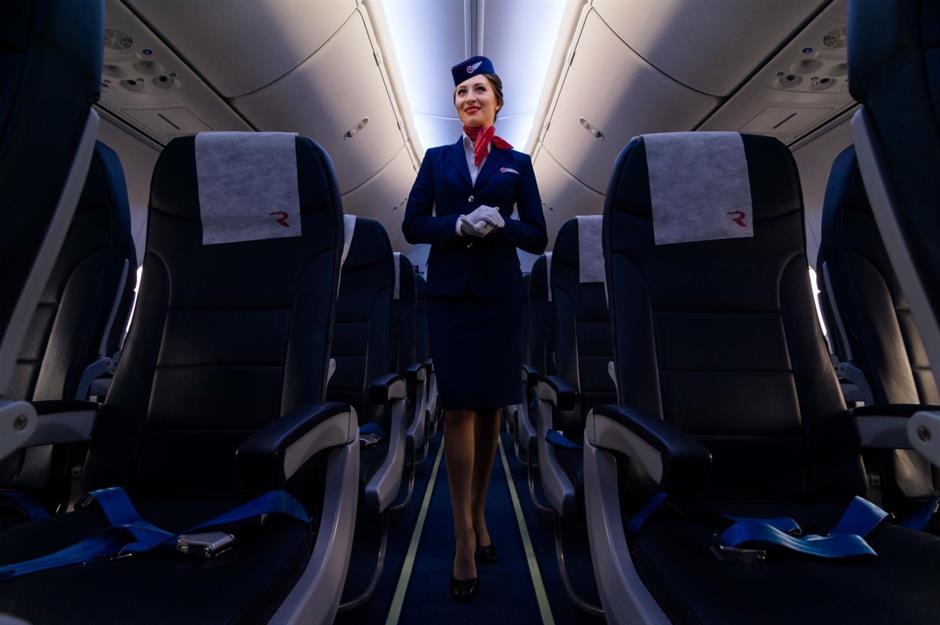
Flight attendants don't swim very often while carrying out their duties, but when they need to, they really need to. Cabin crew must be able to confidently tackle a variety of different safety situations – including landing on water.
Different airlines have different requirements for potential hires: from simply being able to swim 80 feet (25m) unaided, to being able to swim 650 feet (200m) followed by 25 feet (8m) underwater. All cabin crew trainees must also undergo a so-called 'wet drill', which involves entering a pool fully clothed and hauling yourself aboard a life raft.
Planes do get struck by lightning – and passengers don't usually notice
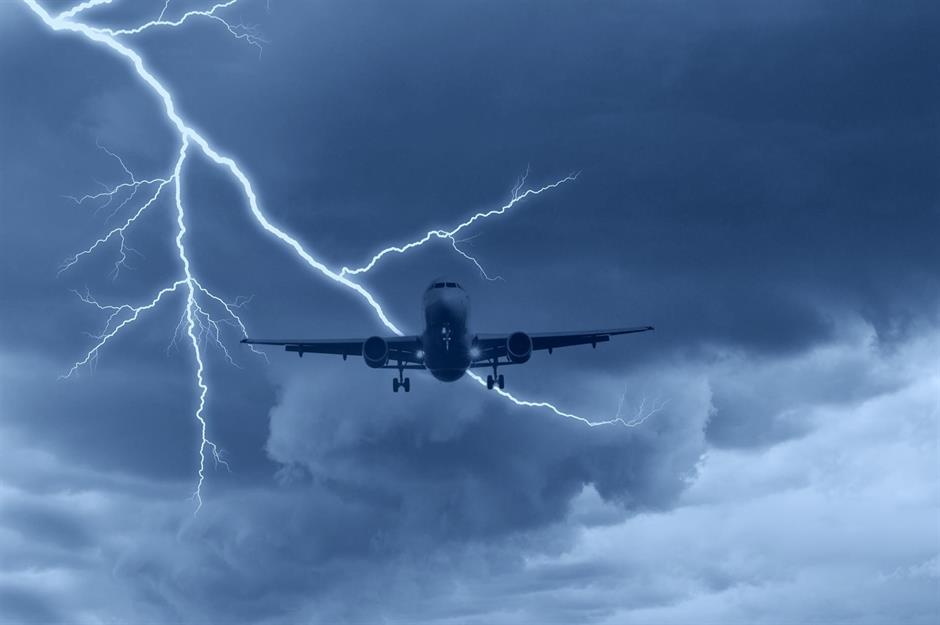
Planes are engineered to withstand lightning strikes – with a conducting metal skin that can be a safe vessel for electric current. A bolt will typically hit an extremity, like a wing tip, and exit the plane's skeleton at another extremity, such as the tail.
These strikes occur once or twice a year on average, and if detected are followed by extensive safety checks, but they typically leave no damage and the plane's occupants are often none the wiser.
People cry more on planes

Surveys have repeatedly shown that people cry more during in-flight movies than when watching films in the cinema. Flying is an uncomfortable and anxiety-inducing experience for many, and sad or sentimental movies can tap into already heightened emotions.
The slightly lower oxygen levels in plane cabins also make it harder to regulate stress, as does the vulnerability some people feel being without internet connection or phone signal – disconnected from the world.
Comments
Be the first to comment
Do you want to comment on this article? You need to be signed in for this feature